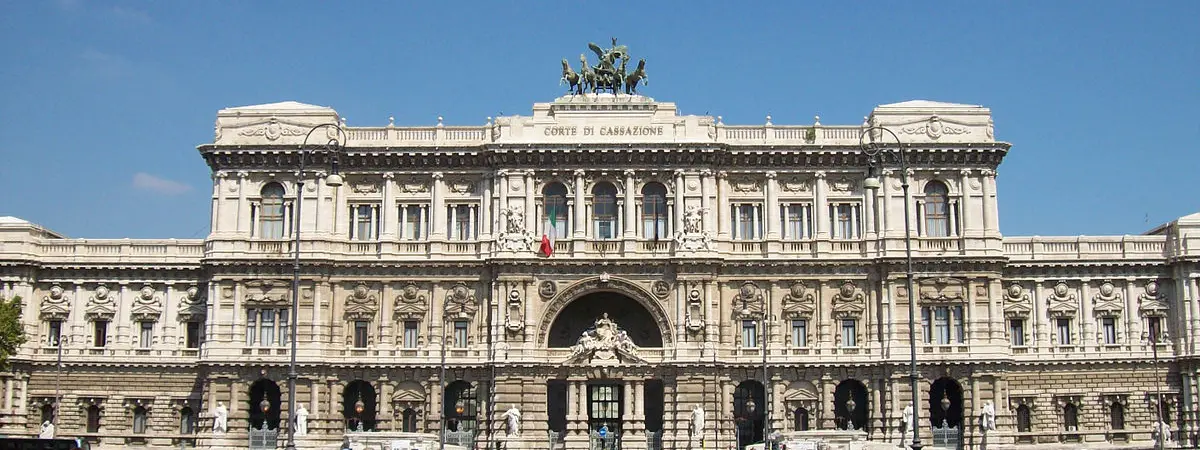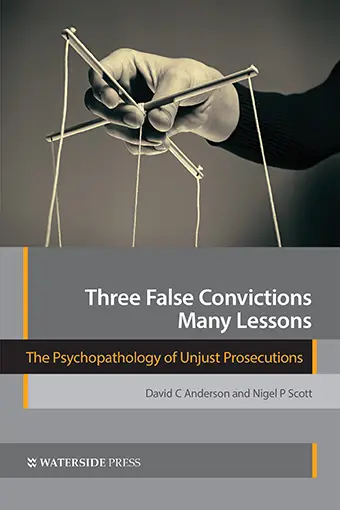
David Anderson reviews the literary attempt of Francesco Maresca, the Kercher family’s lawyer and reveals that Amanda Knox and Raffaele Sollecito were attacked from the start by two separate but coordinated legal teams, one criminal, the other civil.
One of the most disquieting things about the Italian system of criminal justice is that the civil case, ostensibly on behalf of the family, is run both in Court and outside as an extra arm in the criminal prosecution. Understandable sympathy for the family of the deceased is tapped and used as an emotional smokescreen to support the prosecution.
This abuse was flagrant in the case against Amanda and Raffaele. The Kercher’s smooth-talking lawyer Francesco Maresca, whose name was suggested to the Kercher family by the British Council and the prosecutor Giuliano Mignini at the height of their shock and therefore when they were at their most suggestible, became one of the Prosecution’s most powerful weapons.
A slender tome, hardly a book
In late 2016 Maresca wrote a book (more of a pamphlet really, but on sale for 12 Euros) defending his role in the case, and essentially arguing that Injustice was served by the final decision of the Supreme Court to release two innocents. I bought a copy and translated it while convalescing in Hong Kong over Christmas 2016.
During the appeal that led to the first acquittal I had made a point of always sitting behind the prosecutorial team in Court, and I was delighted to read in this booklet that I succeeded in getting under Maresca’s skin. I had, incidentally, annoyed him by asking why as lawyer for the civil case he was slavishly following the Prosecution, rather than acting solely for the Kerchers. I did not get an answer.
This is what he says about me in his book….
‘In addition to Mario Spezi, there was also present at all the hearings an American retired doctor, resident in Perugia, who seeing how he observed me in court, probably loathed me, as I suppose he also did Mignini, retaining it as scandalous that an American was detained for four years awaiting trial. This character also followed the hearings in Florence, becoming a spectator whose presence annoyed me greatly, because it was looming and biased.’….
Obviously I am delighted to have been mentioned in the same paragraph as my friend the crime reporter Mario Spezi, but deeply hurt that he describes me as a retired American doctor living in Perugia. It is, however flattering to be described as ‘ingombrente’ (looming), a pejorative term usually reserved for witches.
Remembering names is not a strength
An extraordinary feature of this booklet is that he manages to get almost every name and date wrong. British Consul Mrs Moira Mc Farlane becomes Mv Pharlen; the American lawyer Anne Bremner, becomes Anne Bremnan (twice); the ridiculous witness Hekuran Kokomani, becomes Antonio; another witness Antonella Monarchia, is Allessandra, while Nara Capezzali transmutes to Nadia. Even three declared journalist friends are spelt wrong – Tom Kington becomes Kingdom; John Follain becomes Follaine; and Andrea Vogt, Vought. He even states that ‘Hellmann Pratillo‘, not Allessandro Nencini, was judge in the Florentine trial. Claudio Pratillo Hellmann had of course presided over the earlier appeal in Perugia.
Maresca confuses no less than three times the pro-guilt newspaper Giornale dell’Umbria, with the more balanced Corriere dell’Umbria. He writes June 2010, when he means October 2011, marks the end of the first trial as December 4th and 5th 2010, instead of 2009; and the start of the appeal, attended by Stefanie and Lyle Kercher, as 15th December 2011, instead of the same day in 2010. The inconsistencies are so consistent that I began to suspect some ulterior motive; maybe it is that you cannot be sued over a misprint. On the other hand the fact that he gets Rudy Guede’s date of birth wrong (1985 when in fact it is 26 December 1986) points to simple sloppiness.
Dignified silence or confirmation bias?
He writes that …..‘The Kerchers “chose the elegance of silence”, maintaining complete silence concerning their real feelings, waiting solely for justice to take its course.’ In fact what they have consistently shown is a belief in guilt which continues to this day, for example on the ‘True Justice for Meredith Kercher’ blogsite, and of course in the writings of Harry Rag, alias The Machine.
Maresca says without apology, ‘I worked beside the PM (Prosecutor), almost as a private investigator, with my consultants at my side. I was approached almost continuously by the police force, and many times I have replaced him to see for myself the results of scientific findings and the evolution of the investigation. Here he hints at maybe a trace of guilt….’(it) did not always suit my personality or my method of working, such that, as had been taught by the old masters of penal rights, a good defense lawyer should never take on (the defense of) a civil party, since the accusatory approach, exclusive prerogative of the Public Minister (prosecutor), conflicted with the training of the barrister.’
Who can tell the most persuasive story?
Maresca makes the following extraordinary statement, which shows disdain for hard evidence as opposed to hearsay from dubious witnesses collected by and to support the prosecutor’s case:
‘The roots of the verdict came from the witnesses, such that it is true that my harangue at the end of the first trial, which lasted several hours, developed on the analysis of all the evidence concerning the accused except the scientific; in my opinion, in fact, the witnesses of whom I have spoken, and the breakdown of alibis‘ (ie those of Amanda and Raffaele, in statements collected illegally under duress and without a lawyer present) ‘were more than sufficient to condemn them.’
If there is any doubt about the blurring of roles allowed under Italian law, here is another astonishing statement:
’The prosecutors were not able to release interviews, so I in fact found myself often speaking on behalf in the interests the prosecutor of Perugia, as I tried to report these facts. Thus I defended to the hilt the work of that Office dragging behind me the lines of journalists and criminologists who challenged it with no half measures’.
Maresca unwittingly argues for reasonable doubt
Finally these are the considered thoughts of this self-justifying lawyer, on the life and role in the crime of Sollecito:
‘Raffaele was a young man, according to others who lived with him at ONAOSI college during the first years at University, who was very timid, to the point of misogyny, who had never had any important rapport with the other sex, who was dedicated to masturbation’ (like more than 90% of males, according to Kinsey you legalistic wankaphobe!) and spasmodic reading of manga comics…..
Obviously I wasn’t there, but what I think is that Amanda intervened with Rudy, while I have strong doubts as to the presence of Sollecito in that house, not so much because of what the trials (or the DNA evidence?) told me, as from an evaluation of his character type; (so here Maresca expresses reasonable doubt); effectively the picture his defense had always made, namely of a young man detached from reality and certainly not capable of undertaking such a heinous crime, (no different here from Amanda)… and to then to support its consequences, to be honest this could somehow represent the truth…….It is certain, and this is more sentimental, that his whole characteristics in relation to Amanda made me wonder if he went to the house just the morning after to help his girlfriend clean up the crime scene‘
So how was such a cretin allowed through Law School, I ask?
The civil should not become entangled with the criminal
If, in the future some able, honest and determined Italian politicians decide to revisit the separation of careers of Public Prosecutors and Judges, as well as indeed the whole Italian accusatorial process, they need look no further that Francesco Maresca’s apology of a book for evidence that the civil case must not be allowed to contaminate the criminal trial, thus reinforcing an already biased prosecution.
